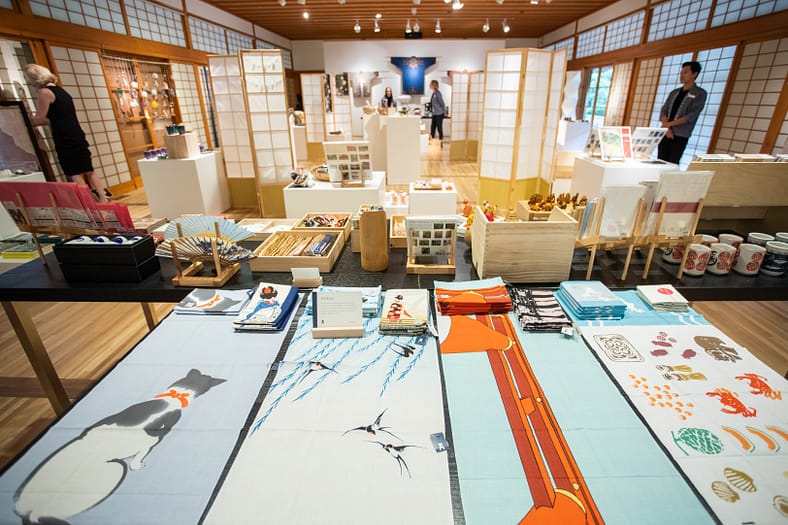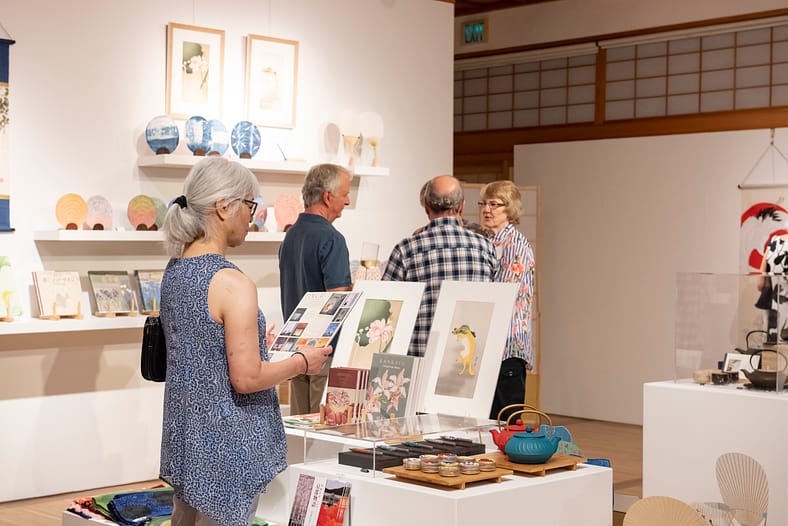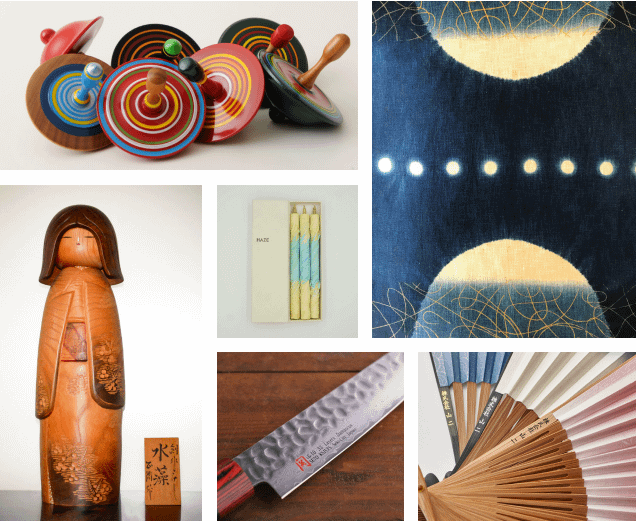
Behind the Shoji, opening July 1 and running through September 4 in Portland Japanese Garden’s Pavilion Gallery, is one of the Garden’s most beloved summer traditions. An annual show and sale of Japanese and Japanese-inspired wares, visitors can peruse and purchase from a variety of curated items often unavailable short of a visit to Japan itself. What makes this elevated and distinctive shopping experience stand out is the level of care and the miles traveled that go into determining which items will be available.
“I travel to Japan yearly to attend the Tokyo International Gift Show and visit a new region each year to meet with craftsmen in their studios and shops,” shared Ashley McQuade, Director of Buying and Merchandising. “The most rewarding part of my travels is creating partnerships with independent craftsmen—I’m always left feeling inspired by the experience. With these partnerships, the Garden supports their livelihoods and, in some cases, helps keep interest in their crafts from waning. In return, we offer our visitors a unique product selection and help to create a greater understanding of Japanese craftsmanship and culture.”

Whether they’re sourced directly from Japan or elsewhere, McQuade journeys to find items that authentically reflect Japanese culture and aesthetics but will also interest Western audiences. “We focus on contemporary products that are crafted through traditional practices,” McQuade noted. “For example, many knife makers today use the same methods and techniques that have been used by sword makers for hundreds of years. Our Iseya line of Japanese handled kitchen knives are made in Seki City in Gifu Prefecture, an area known as a Samurais sword-smiths’ town and is now a center of modern Japanese cutlery manufacturing. By continuing to make knives, these craftsmen honor and preserve the skills of generations of those who came before them, and people can own something that has more utility in their homes.”
“I think [Behind the Shoji] speaks to how we’re more than a garden. We’re also a cultural organization, and this marketplace offers a tangible connection to Japanese culture.
Ashley McQuade
Behind the Shoji is a shopping experience, but the motivation behind offering it ties directly into Portland Japanese Garden’s goals of introducing authentic aspects of Japan to an unfamiliar audience. “I think it speaks to how we’re more than a garden,” McQuade offered. “We’re also a cultural organization, and this marketplace offers a tangible connection to Japanese culture.
2023 Marketplace Will Feature Items from Kyoto and Gunma

Portland Japanese Garden partners with several talented craftspeople both in Japan and around the world to help bring Behind the Shoji to life. One craftsman of note whose wares will be on sale includes Masao Kiyoe. Kiyoe is a first-generation craftsman of shibori-zome (Japanese tie-dye). With a storefront in Kyoto near the Kiyomizu-dera Temple, Kiyoe creates magnificent noren (curtains) and tapestries by extracting different colors from flowers, fruits, vegetables, and even insects to dye fabrics. These natural sources create something warmer than a chemical dye is capable of.
Joining Kiyoe’s noren and tapestries will be kokeshi (wooden dolls) from Fujikawa Koegi. This Gunma Prefecture-located company is led by Chairman Shoei Fujikawa, a master of the medium who has been crafting dolls since 1959. Fujikawa and the company that bears his name prides themselves in preserving Japanese cultural heritage through its kokeshi, handmade wooden dolls that date back to the Edo period of Japan in the 19th century. Among these expertly carved figures in the marketplace will be Mizuno, a doll made from Japanese Zelkova, a wood beloved for its bright and dynamic grain.